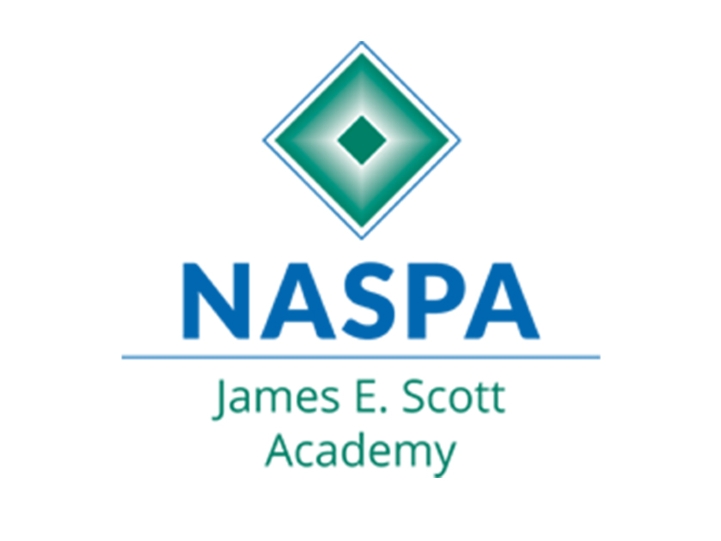
Accompaniment and the Flashpoints of Our Lives
Career and Workforce Development Supporting the Profession AVP or "Number Two" Senior Level VP for Student Affairs
February 16, 2023
A recent EAB Briefing title caught my eye – “How your response to campus conflict impacts faculty well-being.” In the briefing by Katie Herrmann dated November 23, 2022, she highlighted the idea of flashpoints or “climate-related incidents or events that cause disturbances in the community or media. They span a wide range of issues, from on-campus incidents and controversy around alumni to social movements and widespread political and economic events.” While the emphasis of the briefing was on faculty well-being, I quickly found myself considering our efforts to also care for students, staff, and alumni in these types of circumstances, and pondering what allows us as student affairs professionals and leaders to most effectively help our community members navigate the various “flashpoints” that seem to occur with greater frequency and severity as the years go by.
As a Protestant working for a Catholic, Jesuit university for over 21 years, one of my significant points of learning has been the notion of accompaniment. Our former president at Rockhurst University (Kansas City, MO), the Rev. Thomas B. Curran, S.J., spoke often of the idea of accompanying others. It was also a behavior he consistently modeled for those in our community. Underlying this notion of accompaniment were three key ideas: being in relationship with others, exhibiting courageous compassion, and offering a unique way of relating to others than we commonly see demonstrated in our culture.
First, to most effectively accompany someone, ideally you first develop a relationship with them, and this comes about through intentional efforts to engage others in spaces where they feel safest. Before we can truly be “for” another person, we need to invest time and energy “with” others – and build a base of knowledge and trust during more calm periods of life to be positioned to more effectively accompany during “flashpoints” that emerge. One of the unique ways I choose to do this as a senior student affairs officer is by being Rockhurst’s Student Senate advisor, a role often filled by new or mid-level student affairs professionals. While their weekly evening meetings can be challenging when I would rather be in the comfort of my home (or bed!), I have repeatedly found myself thinking that “Wednesday is the best day of the week and 9 p.m. is the best time of the day!”
Second, as leaders it is essential that we offer compassion to those in our realms of influence. Often, we think about compassion as a heartfelt empathy toward another person. Fr. Curran more commonly described compassion as a “willingness to enter the chaos” of another person or circumstance. While compassion ideally requires a knowledge of others and how the events of life might impact their lives, it also demands a sense of courage and persistence as we journey through the chaos with another person or group of people. Undoubtedly, we can all identify with journeying with students during all the uncertainties, stressors, and loss of COVID starting in March 2020. Other illustrations of “entering the chaos” that have been a part of our Rockhurst journey have included a rapid and comprehensive response by our crisis team to the aftermath of a “zoom bombing” of a remote program sponsored by one of our student organizations, or spending time with a student leader, whom I deeply respect, in the midst of her shock and confusion when she learned she just barely missed the score she needed to secure entry into graduate school.
Last, effective accompaniment really requires a different “way of proceeding” than we often see modeled in our culture. There must be a different way than “us versus them” and “I am right, and you are wrong” or engaging in the vitriolic social media posts, emails, and texts or character assassinations that we often see in our political and media worlds. St Ignatius Loyola, founder of the Jesuits, offered his followers (and the rest of us!) an alternative way of engaging with others called the Ignatian Conversation. Within it, he offered an approach to thinking, feeling, and acting in our daily lives – and especially within contexts that may be comprised by a wide array of passionate and complicated thoughts and feelings sometimes leading to flashpoints. Within a framework of believing that every person is a child of God and deserving of respect and consideration no matter what opinion the person holds or the history of the relationship with this person, we are invited to. . .
- Be slow to speak
- Listen attentively
- Seek the truth in what others are saying
- Disagree humbly, respectfully, and thoughtfully
- Allow the conversation the time it needs
While my staff and the students I regularly work with (and indeed my own family members) will tell you that I still have a lot to learn about accompaniment, I do offer the above thoughts to you, my colleagues, in a spirit of humility and with the hope that it might offer you a greater sense of meaning in your work. May it also provide an alternative pathway for navigating all aspects of life, particularly the “flashpoints” that have become a more common part of our day-to-day professional lives. I am inspired in my pursuit of accompaniment, not only by Fr. Curran, but by our student leaders and my colleagues at Rockhurst, as well as so many of you across the country that I have the great fortune to know and call my friends. I celebrate and give thanks for this wonderful gift!
 Matthew D. Quick serves as the dean of students/vice president, student development & Athletics at Rockhurst University and is a member of the NASPA James E. Scott Academy Board.
Matthew D. Quick serves as the dean of students/vice president, student development & Athletics at Rockhurst University and is a member of the NASPA James E. Scott Academy Board.